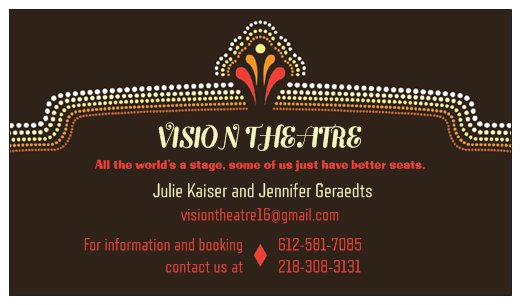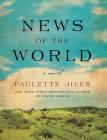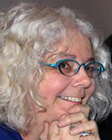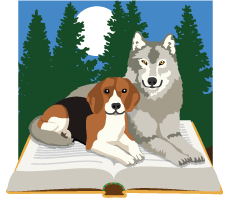|
|
 Jen Jen |
|

|
 |
Hag-seed
by Margaret Atwood
comes out on October 11!
In Hag-seed, Felix is the Artistic Director of the Makeshiweg Theatre Festival. He’s planning to stage a completely new version of Shakespeare's Tempest that will not only boost his reputation, but will heal the emotional wounds of his wife and daughter's deaths. Instead, however, Felix is fired and exiles himself to the woods to grieve and plan revenge. Twelve years later, Felix finally sees his opportunity: he is hired for a position as a theater director at the nearby prison. He finally will get to present Tempest and seek revenge at the same time.
 The dialog and character development are fabulous. Of the Atwood books which I’ve read, I think this may be the funniest. Hag-seed is a re-telling of Shakespeare's The Tempest and is the newest book in the Hogarth Shakespeare Series. Hogarth is publishing re-tellings of Shakespeare works written by well-known, accomplished modern writers (the first three authors to write books in the series are Jeanette Winterson, Howard Jacobson, and Anne Tyler.) I have not read Tempest and it didn't matter in the least in reading Hag-seed. Of course, now I'm interested to read the Tempest, but it's not necessary to follow and enjoy Hag-seed. The dialog and character development are fabulous. Of the Atwood books which I’ve read, I think this may be the funniest. Hag-seed is a re-telling of Shakespeare's The Tempest and is the newest book in the Hogarth Shakespeare Series. Hogarth is publishing re-tellings of Shakespeare works written by well-known, accomplished modern writers (the first three authors to write books in the series are Jeanette Winterson, Howard Jacobson, and Anne Tyler.) I have not read Tempest and it didn't matter in the least in reading Hag-seed. Of course, now I'm interested to read the Tempest, but it's not necessary to follow and enjoy Hag-seed.
|
| |
|
 |
|
Inhabited
by Charlie Quimby
This is Charlie Quimby's second novel (his first was The Monument Road, a terrific read.) Meg Mogrin is a successful realtor who rubs shoulders with the elite. There’s a homeless problem in Meg’s town that the town is struggling to fix. Isaac Samson, who lives in a tent and suffers a mental disorder, puts a face on homelessness. I was drawn into the book by Charlie's exquisite writing and the pull of an important issue being treated with the respect it deserves. One of the ways that booksellers decide which books to read (we try to read them all, but most of us have to sleep sometimes) is the recommendations of fellow booksellers and authors. A number of authors I admire have positive things to say about Inhabited, including one our favorite authors, Peter Geye. |
| |
|
|
|

Vision Theatre, the performance art group Julie Kaiser and I have founded, will be performing at the store’s upcoming reading retreat. I don’t want to give away what we plan to do, but I’m reading a fair amount of and about Edgar Allan Poe, Conan Doyle, and Agatha Christie in preparation.
|
| |
|
|
|
|
|
|
|
 Sally Sally |
|
 |
|
|
|
|
| |

|
|
News of the World
by
Paulette Jiles
The three best books I’ve read this year are Medicine Walk, LaRose, and Wintering. I now have a fourth to add to the list. The novel is set in Texas shortly after the Civil War. Texas is a dangerous place, with no legitimate government, plenty of armed desperados, and several Indian tribes presenting a constant threat. Jefferson Kidd, a 70-something veteran of two wars wanders through the territory, supporting himself by reading the news. In each town where he stops, he rents a hall, puts up posters, and reads the news from a variety of newspapers. He’s asked to return to her family a young girl who was captured by a raiding party of Kiowas. Kidd reluctantly takes on the task. The girl, Johanna, was with her captors for a year. She has forgotten everything about her past, and resists being separated from the Kiowa family who adopted her. The characters are appealing, the book is beautifully written, and it illuminates an historical setting which I knew nothing about. The book will be released on October 4.
|
| |
|

|
|
The Devil May Care
by David Housewright
Last spring, Minnesota mystery writer David Housewright was at our Author Fest, and since then, I’ve been reading his books. They’re set primarily in Minnesota and feature McKenzie, a former cop turned unlicensed private investigator. The situations McKenzie gets involved in are heavy duty, but his wry outlook sets a light and humorous tone. The books are entertaining and set in locations which are often familiar. My only complaint is that Housewright’s publisher has not issued the books in paperback! We have some used copies at the store, however. |
| |
|
 |
|
Lab Girl
by Hope Jahren
I read Lab Girl for the reading retreat I participated in in August, and I’m so glad that I did! The book is a memoir by a woman who grew up in Austin Minnesota. Her father was a scientist at a local community college, and she grew up in his lab. I was immediately hooked by this opening—my husband is also a scientist and our daughter, Jen, grew up in his lab. Hope experienced issues I had observed throughout my husband’s career, such as the need for university faculty members to write grants to fund their research and the difficulties faced by women in science. I think this book will appeal to thoughtful readers without the experiences I brought to it, however. Jahren is an excellent writer and storyteller. Unlike many memoirs, this one focus more on her work than on her personal life, and Jahren brings that work vividly alive on the page. |
| |
|
|
|
|
|
|
|

Gail |
|
 |
|
|
|
|
| |

|
|
Circling the Sun
by Paula McLain
The author rises to new heights in historical fiction with her story of Beryl Markham. Markham was raised in an unconventional way in 1920's Kenya, Africa. When Beryl's father loses his farm she is devastated. Her life centered around training horses for racing. Her father remarries and leaves her to make her way on her own. Several disastrous decisions follow including a love triangle with safari hunter Denys Finch-Hatton and Karen Blixen (author of Out of Africa). She finally finds her true calling: flying. |
| |
|

|
|
West with the Night
by Beryl Markham
After reading Circling the Sun about Beryl Markham, I was interested in reading her autobiography. Her book talks about training racehorses in Africa and then learning to fly. In September of 1936 she became the first woman to fly solo across the Atlantic from east to west, taking off from England and crash landing in Nova Scotia. here is a quote from Ernest Hemingway on the back of the book. "She can write rings around all of us who consider ourselves as writers." A great book.
|
| |
|
 |
|
Out of Africa
by Isak Dinesen
Among the people talked about in the book Circling the Sun is Baroness Karen Blixen. Isak Dinesen was her pen name and her true story is about the coffee plantations she had in Africa for 17 years. Her descriptions of Africa and particularly the stories of the natives are very interesting. Her book was made into a movie of the same name starring Meryl Streep and Robert Redford.
The trailer for the movie Out of Africa shows glimpses of the land where Markham and Dinesen lived. |
| |
|
|
|
|
|
|
|

Hannah |
|
 |
|
|
|
|
| |

|
|
The Girl on the Train
by Paula Hawkins
Quick! Read this before you see the movie! It’s a psychological thriller about a woman who drinks too much, and lives vicariously through the lives of a couple she sees from her train window every morning and evening as she commutes to the city and back. One morning she is unable to remember her last drunken evening, and she sees the couple she’s been watching in the news…
The movie looks great (see the trailer here), but it’s always best to read the book first! |
| |
|

|
|
A Great Reckoning
by Louise Penny
Penny has done it again! For those of you who have been reading her series, enough said. If you haven't and you like mysteries that are strong on character and fascinating details of place, the arts, and a variety of topics explored in depth, you must read this series, and it must be read in order. The first in the series is Still Life.
In the book's Acknowledgements Penny shares that her husband is suffering from dementia and talks about the important support from friends that has allowed her to continue to write. She has a website louisepenny.com that includes information about her personal life, a French pronunciation guide, and advice about getting published.
Editor’s Note: Penny’s husband, Dr. Michael Whitehead, died on September 18.
|
| |
|

|
|
Excellent Lombards
by Jane Hamilton
A very intelligent and intense girl is raised on a Midwestern farm with a large apple orchard and a herd of sheep. She and her almost-a-twin brother live in a family compound. The family is dealing with their contrasting personalities and with worries about what will happen when the next generation comes to adulthood. At the end of the book I was almost in tears, just because I found this book so beautiful. |
| |
|

|
|
You Too Can Have a Body Like Mine
by Alexandra Gleeman
Things seem normal as the book opens. The narrator has rather odd relationships with her roommate and her boyfriend, but nothing unbelievable. Then things start to get strange. The surreal Kandy Kats commercials and the Disappearing Dads Disorder are clues that we are not in Kansas anymore. Or maybe we are, with just a heightened awareness of our culture. This book isn’t for everyone, but it may turn into a cult classic. It’s existentialism for the 21st century. |
| |
|
|
|
|
|
| |
|
|
|
|

Tim |
|
 |
|
Twelve by Twelve: A One-Room Cabin Off the Grid & Beyond the American Dream
by William Powers
This book is the account of a young man encountering an alternative lifestyle of minimalism, land stewardship and ethical consumerism, by agreeing to house-sit for a friend in her 12' x 12' house. This is a good book for those of us questioning our own 'addiction' to accumulating things, and whether our own spiritual growth and development may be retarded by the consumerism and commoditization we experience in the world. Here's a thoughtful introduction to the questions of: When is enough, enough? and How might we begin the process of change? |
| |
|
|
|
|
|
— page top —
|
|



 Jen
Jen

 Sally
Sally






